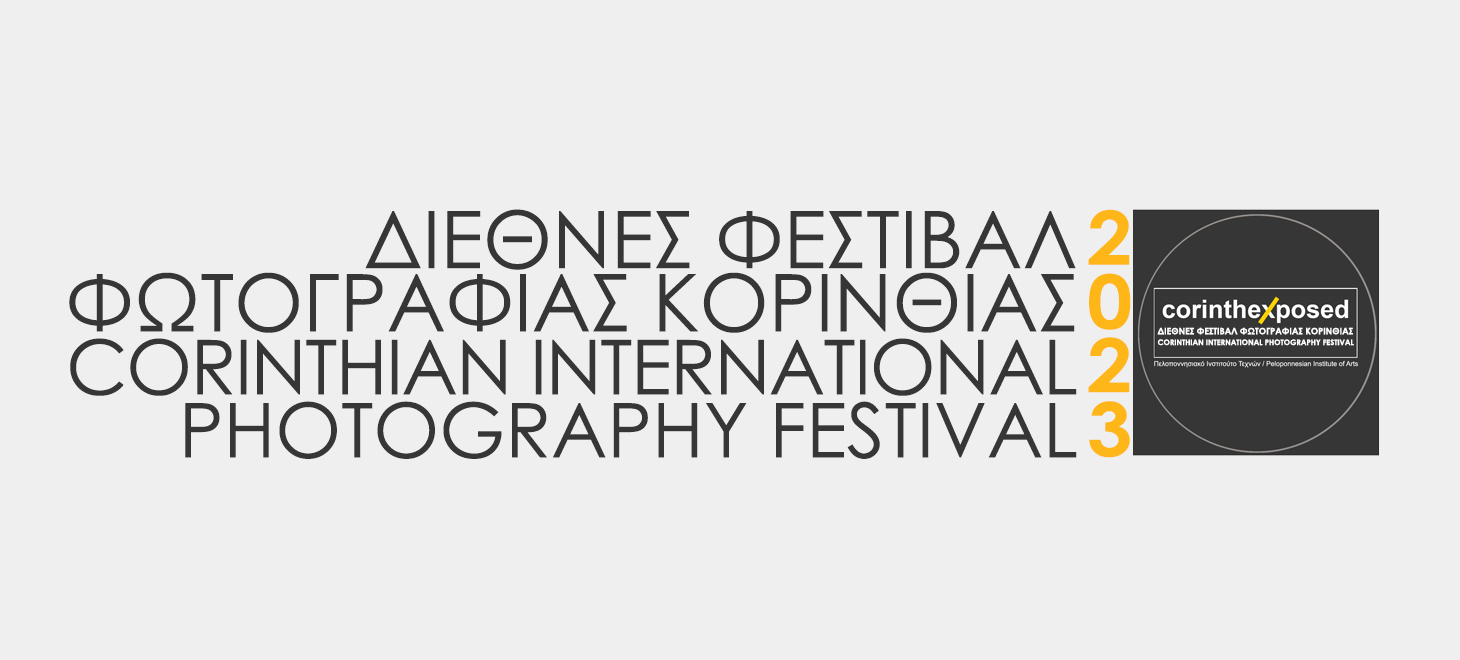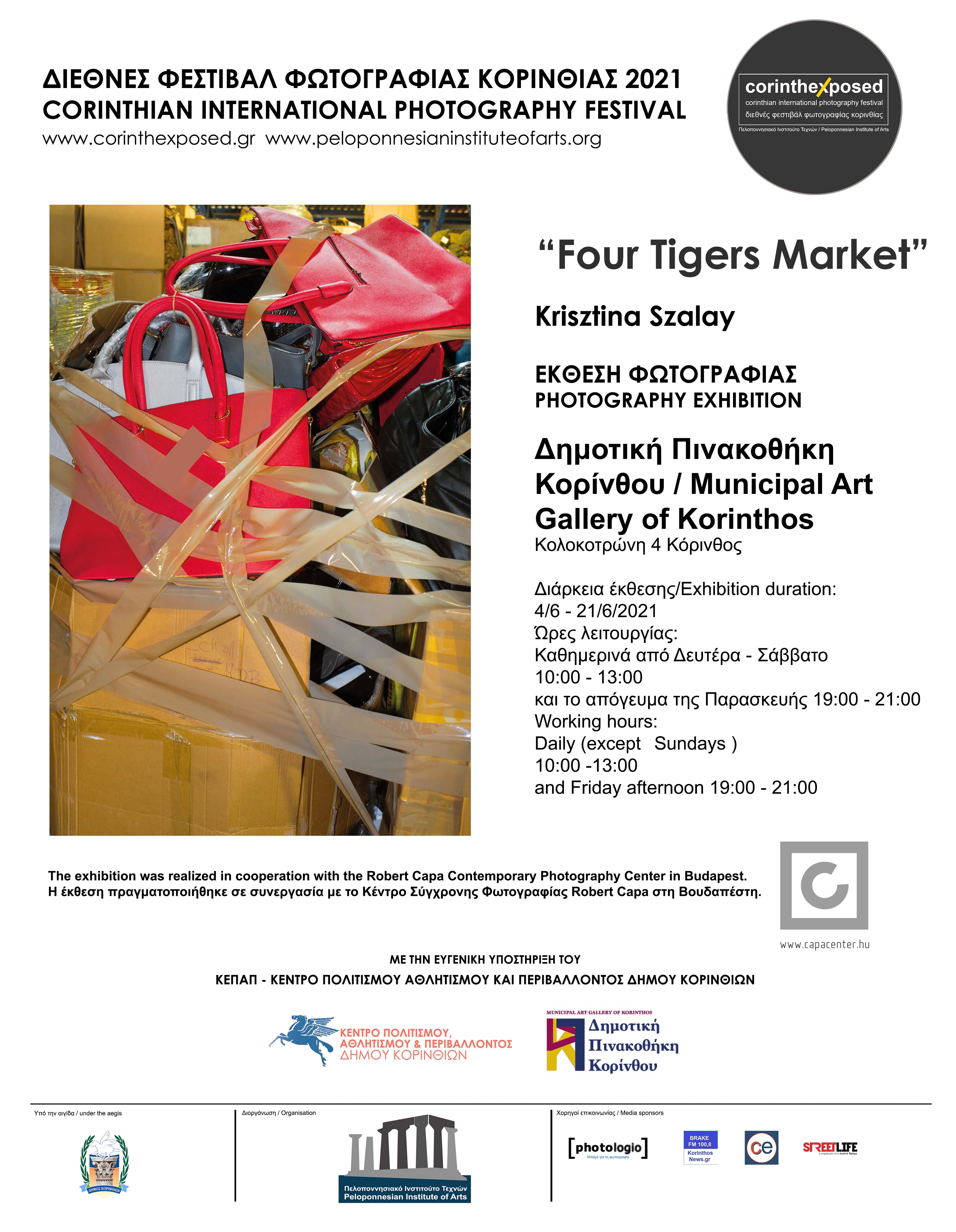PRESS RELEASE
Corinth, 31 May 2021
MUNICIPAL GALLERY OF CORINTH
From Friday, June 4, the Municipal Gallery of Corinth presents the solo photo exhibition of the winner of the "The Fellowship-winner of Capa Grand Prize Hungary 2020" Krisztina Szalay from Hungary entitled: Four Tigers Market.
The exhibition is organized in collaboration with the Center for Culture, Sports and Environment, the Municipal Gallery of Corinth, the Corinth Photography Festival 2021, the Robert Capa Center for Contemporary Photography in Budapest and the Peloponnesian Institute of Arts.
Exhibition duration: From 4 - 21 June 2021
Opening: Friday 4 June 2021 at 19:00
Working hours:
Monday - Saturday: 10:00 to 13:00
Friday (afternoon): 19:00 - 21:00
We would like to inform you that in all the places where the actions of the festival are hosted, all the security measures set by the competent Ministries are observed to prevent the spread of Covid 19.
The diversity of the place, which many people simply call the Chinese market, is remarkable compared to Hungarian conditions; there is a cultural cavalcade at the former Ganz factory plant, which now is also notoriously surrounded by a criminally dangerous merchant environment. A city inside the city came into existence here, which operates completely segregated.
About thirty years ago, due to the relaxed visa requirements, the Chinese community in Hungary grew from almost zero to about twenty-seven thousand people in just a few years. The location of my work is the Chinese market in Budapest (Kőbányai Street), which is also the center of the Hungarian Chinese community. Locals have always had second thoughts about the market because in the media it is often connected to illegal imports or raids but, at the same time, it also provides a good opportunity to buy cheaper products.
The National Tax and Customs Administration of Hungary constantly monitors the market, but to no avail as it is practically impossible to catch anyone in the act of committing a crime. Although nowadays not only Chinese people work here but also Vietnamese, Mongolian, Romanian, Afghan, Turkish, and Ukrainian workers, the name Chinese market has remained.
With an industrial exterior left behind from the Ganz factory period, the place is permeated by a strong sense of Chinese culture and market atmosphere, all planted in an Easter European milieu.
Under the auspices of the Municipality of Corinth.




